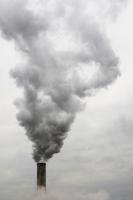The Union of Concerned Scientists has released a report today outlining the considerable risks associated with so-called “clean coal” and carbon capture and storage technology (pdf.)
Clean coal has been a persistent theme throughout the US election, with presidential candidates on both sides of the political ledger touting the message that coal is somehow clean. As coal industry commentator and author Jeff Goodell puts it best:
Clean coal” is not an actual invention, a physical thing – it is an advertising slogan. Like “fat-free donuts” or “interest-free loans.”
In other words, coal remains more in the realm of illusion than reality and the UCS report highlights the major outstanding questions around the holy grail of the coal industry – carbon capture and storage technology (CCS).
The report found that carbon-capture-and-storage technology, while promising, is saddled with many unanswered questions about scale, safety and cost:
SCALE: For the technology to make a meaningful contribution to reducing global warming pollution, it would require an enormous processing and transportation infrastructure that could handle a volume of liquefied carbon dioxide rivaling that of the oil consumed in the United States today. Put another way, the Department of Energy estimates that the annual storage space needed for a typical 600-megawatt plant’s emissions would be approximately four times the volume of the Empire State Building.
SAFETY: Demonstration projects will have to determine if carbon dioxide can be stored indefinitely and in what type of underground geologic formations. Slow carbon leaks could undermine the technology’s effectiveness as a global warming solution and contaminate groundwater. Fast leaks from a storage site or a pipeline could threaten local residents.
COST: Current coal plant designs cannot cost-effectively capture carbon dioxide. Studies estimate that adding the technology to a conventional coal plant would dramatically increase cost and reduce energy output. Although there are advanced coal plant designs that are better suited for carbon capture, it still would be extremely expensive to add the technology, particularly as a retrofit.
Subscribe to our newsletter
Stay up to date with DeSmog news and alerts






